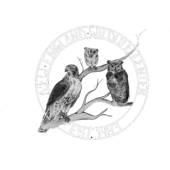
Where there are humans, there are rodents.
For half a milennia our dwellings, food stores, and uniquely messy tendencies have provided a steady and amenable food source for all manner of mice, rats, squirrels, and other Rodentia. We like our houses large and our yards landscaped. We like our trash and food waste kept outside the home while awaiting pickup. Collectively we have managed to reduce the natural food and habitats for rodents, while simultaneously offering them a very appealing alternative close to home. In fact, we are so reliable that we have even managed to “domesticate” a few populations along the way, leaving them to dependent on cohabitation for their very survival. In many ways their behaviors and preferences have evolved along with us, and they remain some of the most intelligent creatures living wild and semi-wild in our North American landscape.
Whether or not you hold rodents in high esteem, there is good reason to keep them from free-ranging in your home. Rodents, especially rats and mice, serve as vectors for several diseases that can potentially make us sick. Hantavirus, leptospirosis, and salmonella all come to front of mind. They can also do significant damage to homes, businesses, and infrastructure if populations go un-checked. At one time or another we have all found ourselves in the unenviable position of having to control a rodent population. However, the way you approach this seemingly mundane task matters. It makes a difference to your family and pet’s health, to your wallet, and to all the wildlife that share your habitat. If you take nothing else from this article, please know that not all Rodent control was created equal. You have a choice, and your choice matters to more than the rodents.
Where there are humans, there are rodents. Where there are rodents, there are raptors.
No one will pass up a free lunch. This includes our local predator species like hawks, owls, fox, and raccoons. Rodents of all size make up the base of their diet and they rely on them for the calories and protein that these meals afford. Like any other hungry creature, they follow the food and often end up making our backyards their homes too. This is why your choice matters. If tomorrow you walked into your dining room and your favorite meal was nicely laid out on the table, no work involved, would you eat it? What if that seemingly free lunch was laced with a poison that stopped your blood from clotting? Regretful to be sure.
This is what is happening our predator species, every day, in every corner of our state thanks a class of rodent deterrents known as Second Generation Anti-coagulant rodenticides (SGAR’s for ease of communication). For many years these have been the go-to weapon in the war on rodents, and the collateral damage to our local ecosystem is prolific. Birds of prey have borne the brunt of this damage, with a recent studies indicating that close to 100% of hawks tested in Massachusetts have some level of exposure to SGAR’s (https://pubmed.ncbi.nlm.nih.gov/33405327/). At the New England Wildlife Center’s, we have seen cases where birds of prey have been exposed to several different types of SGARS, in some cases these birds are as young as two weeks old. The chemicals work by inhibiting the body’s natural ability to clot the blood, and leads to a slow unpleasant expiration. The theory is that this will kill the rodent but do it in such a way that it will not die in your home and create an unpleasant smell. In reality, it creates an appetizing, but deadly meal for a predator. Easy to catch and will not put up a fight. The same mechanism begins to work in their body and before long their ability to clot their blood slips away. They are left debilitated and unable to fend for themselves. In many cases the next meal they are capable of catching is the slow moving one, and the cycle repeats. Eventually a small trauma like a bump or bruise can lead to extreme hemorrhaging and cause the animal to bleed out. This poison is quite affective in people and pets as well, and if the bait is ingested directly it will work to similar effect if left untreated.
Better choices and H. 3991
Right now, SGAR’s are the default method of rodent control for many pest management companies. The most commonly used chemicals are brodifacoum, bromadiolone, difenacoum, and difethialone. Chances are if you call a commercial service requesting a visit will end up with several black bait-boxes filled with SGAR’s. These boxes have become such a common sight in our urban and sub-urban landscape, that they go un-noticed. However, each one has enough bait inside to do kill multiple animals. To learn more about SGAR’s: https://www.epa.gov/rodenticides/restrictions-rodenticide-products#types
Thankfully, there are a countless products and strategies on the market that help control rodent populations, without the deleterious effects of SGAR poisons. Everything from mechanical traps, to dry ice pellets, to contraceptives exist in the toolbox of your local pest control company. Many companies use an integrated pest management approach that will apply a number of methods in concert. There is still no silver bullet for rodent management, but there are methods available to you that do not kill thousands of animals in the process. You have the power to determine what type of rodent control is used on your property, you just have to know enough to ask. In pursuit of this, there is an exciting new piece of legislation that has been introduced in Massachusetts.
Representative James Hawkins (D -2nd Bristol) has introduced a bill to help curtail the use of SGAR’s in Massachusetts. Hawkins has long been a champion for animals and has crafted this the bill with the help of local scientists, advocates, and wildlife experts. This bill has the potential to save countless animals. “An Act Relative to Pesticides” which carries the bill number H.3991 is about decreasing the use of rat poisons in the state, promoting integrated pest management (IPM) and education, and modernizing pesticide use tracking. It was drafted carefully and thoroughly with balanced research, reliable data, documented expert experience, and the support of the most reputable organizations in the field. You can read the full text here (https://malegislature.gov/Bills/192/HD4206), but the takeaways are that it will require pest control companies to disclose the effects of SGAR’s and receive documented consumer consent before using them. 2) It will create a central database and require companies to disclose and document how much of each chemical they use. 3) It will create more public education programs about the use of SGAR’s.
The appealing thing about this legislation (other than the immeasurable good it will do for wildlife) is that it seeks change through literacy, education, and record keeping. It does not restrict personal or commercial freedoms, but rather empowers us to make choices armed with all of the information. Perhaps the most impactful thing is that it will finally give scientists, wildlife caretakers, and policy-makers a clear picture of the quantity and distribution do SGAR’s in Massachusetts. It is refreshingly non-partisan and its passage will have equitable impacts on all who enjoy nature and the services we glean from it.
As of now this bill has officially entered committee, and It needs your help to pass. The challenge is in raising enough visibility for this issue before the end of this session. One of the best ways to do this is to show overwhelming support through a large number of co-sponsors. This includes your local representatives. Here is how you can help:
Share info about this problem on your social media and talk to friends and community members. Here is a recent post from Rep. Hawkins that can be shared. https://www.facebook.com/JimHawkins4Rep/photos/a.687989441405971/1549472495257657/
Email your local representatives in support of H. 3991, “An act Relative to Pesticides”. Your email does not have to be long but make it personal. Include a few sentences about why this legislation matters to you and to your community. A form letter is far less impactful than a statement from the heart. You can find a list of your local reps here. https://malegislature.gov/search/findmylegislator?fbclid=IwAR3SaGP8jZ2ZLB0mjy07M6w4BA01DLDzL1stIeu84LZz9Y-Qxcu4QwZKDaA
We will never fully control rodents, nor should we. Our long-toothed compatriots are at the base of our local food chain and help keep the world around us functioning. In our efforts to exclude them from our homes, we must consider the implications of the methods we use. H. 3991 “An Act Relative to Pesticides” will help people better understand the full weight of these choices. After all an ecosystem without predators and scavengers, is an ecosystem in collapse.

Recent Comments